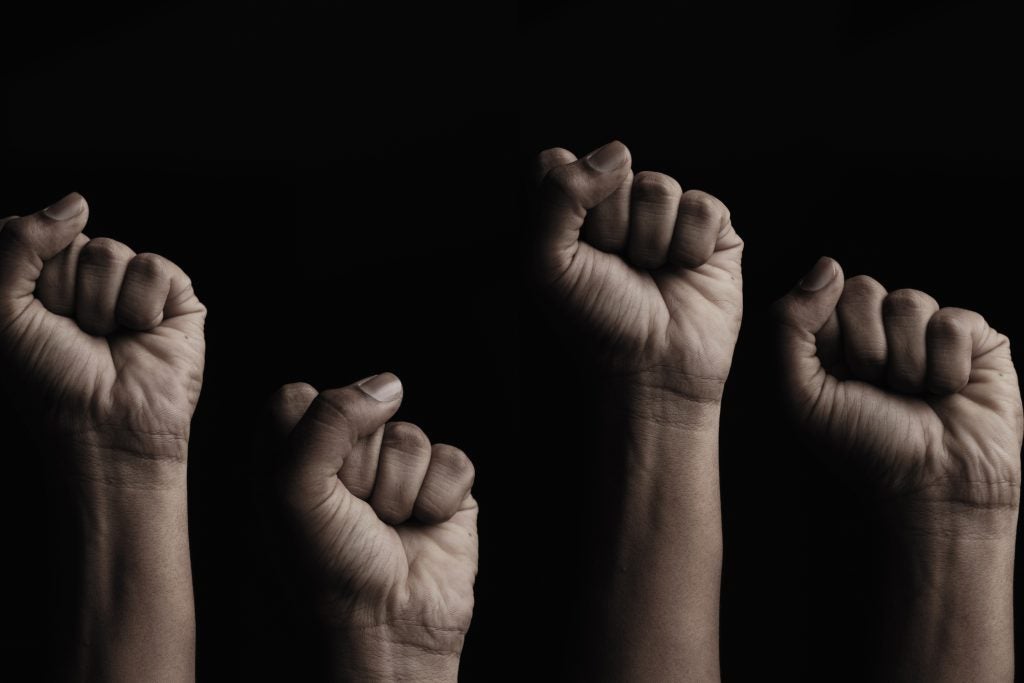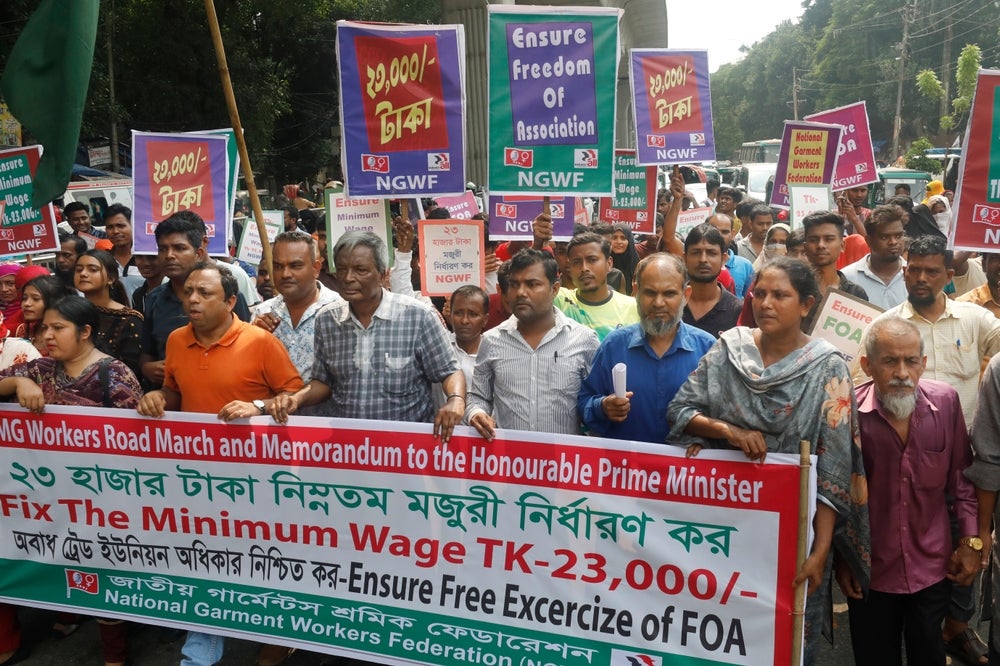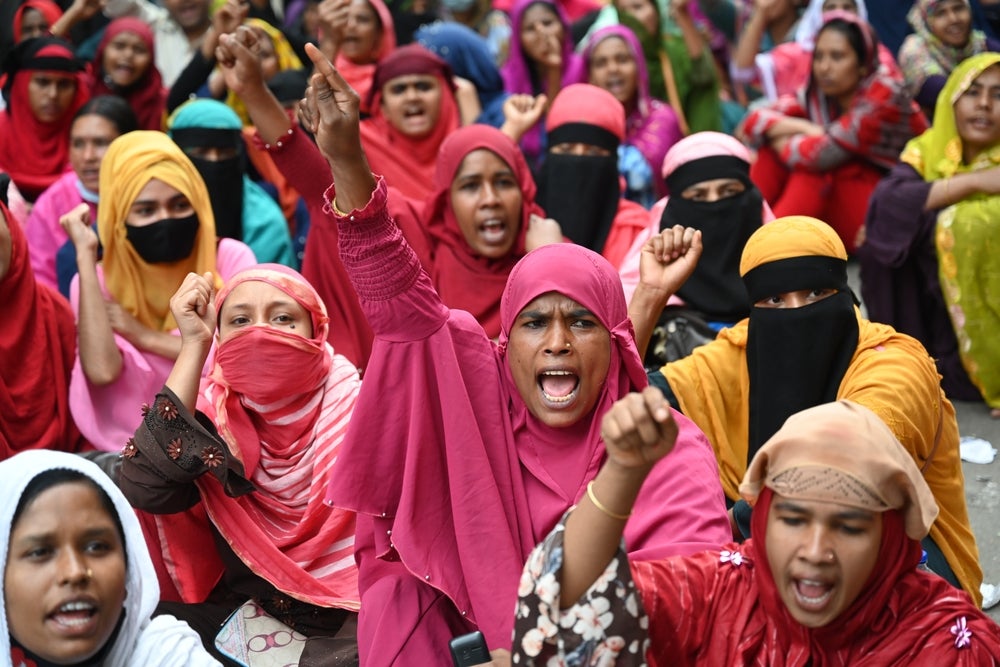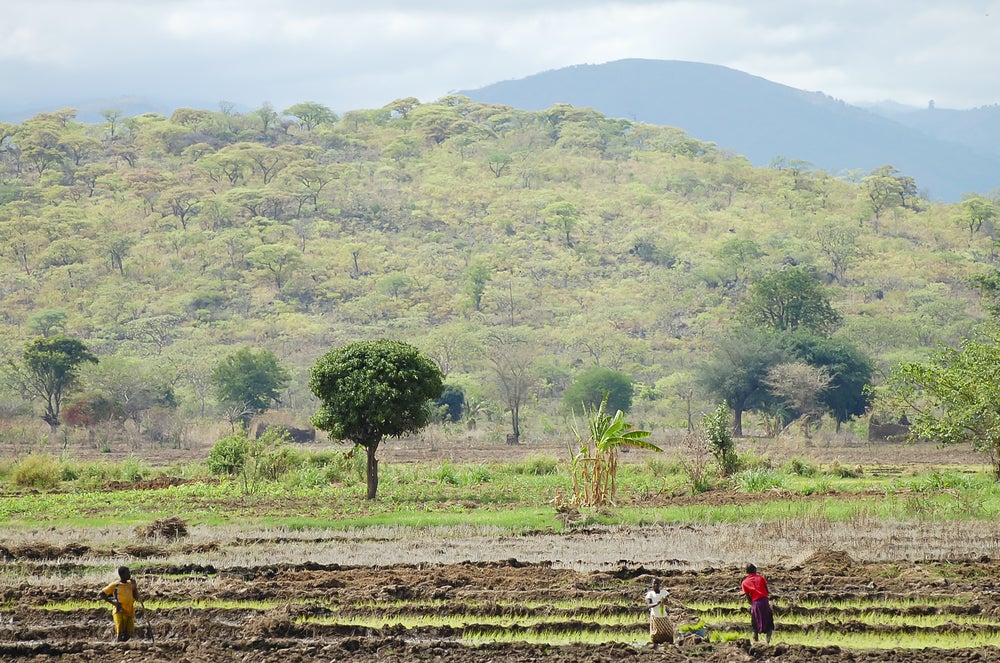Clean Clothes Campaign (CCC), which is an apparel labour union alliance, has condemned what it describes as the "violent repression" of garment workers demanding a wage increase to 23,000Tk ($208) per month after garment worker Rasel Hawlader was allegedly shot dead.
The CCC says protests in Gazipur started after the Bangladesh Garment Manufacturers and Exporters Association (BGMEA) put forward its proposal for the new minimum wage in the garment sector to be set at 10,400Tk (95$), which it explains is less than half of the trade unions’ demand of 23,000Tk ($208) per month.
CCC believes the repression during this year's wage-setting process has reached "unprecedented levels" with another protesting garment worker losing their life.
The organisation says fashion brands sourcing from Bangladesh have "an undeniable role in the recent developments as well".
It points out that while workers are risking their lives to voice their demands, most brands sourcing from Bangladesh "refused to put out a public statement in support of trade unions’ demand for 23,000Tk, ignoring several requests to do so from trade unions and CCC".
The CCC continues: "Despite their codes of conduct and commitments to transparent and inclusive wage-setting mechanisms, most failed to ensure that workers’ voices were heard during the wage negotiations."
CCC is calling on all brands sourcing from Bangladesh to condemn the violence used against workers demanding a minimum wage, confirm their commitment to fair pricing, call for the demands of workers and independent trade unions to be heard by the Wage Board and ensure that workers’ right to freedom of association is protected.
At the time, the fashion brands who co-signed the letter said they remain "optimistic that the final increased minimum wage reached [in Bangladesh] would make significant strides towards ensuring worker welfare by properly reflecting the severe economic challenges that garment workers have faced through the pandemic, the subsequent supply chain crisis, and the current rate of inflation."
Protests erupt after "meagre" minimum wage proposal
CCC states the employers’ "meagre proposal is a painful indication" that workers’ demands have once again been ignored in the Bangladeshi wage-setting process, despite their alignment with the criteria prescribed under the Bangladesh Labour Act and the ILO Convention 131 on Minimum Wage Fixing.
The protests are said to have been instigated in response to this with CCC describing it as a consequence of the desperate need for a family-supporting wage and a lack of faith in the wage revision process itself.
CCC fears a repetition of the heavy-handed retaliation against protesting workers that took place in Bangladesh five years ago during the previous minimum wage revision.
It says: "We call on the government of Bangladesh to immediately put an end to the violence used against workers, who have a right to demonstrate under the Bangladeshi law. We are witnessing history repeating itself, as the playbook for the suppression of workers’ demands, which was successful five years ago, is being used again this year by the government apparatus and the BGMEA alike.
"Furthermore, we call on the government of Bangladesh to stop politicising the wage protests and instead acknowledge the unrest as a direct reaction to the BGMEA’s outrageous wage proposal, which would simply trap workers in poverty for another five years, regardless of the political landscape in Bangladesh."
Neither the Bangladesh Government nor BGMEA had responded to Just Style's request for comment at the time of going to press.















